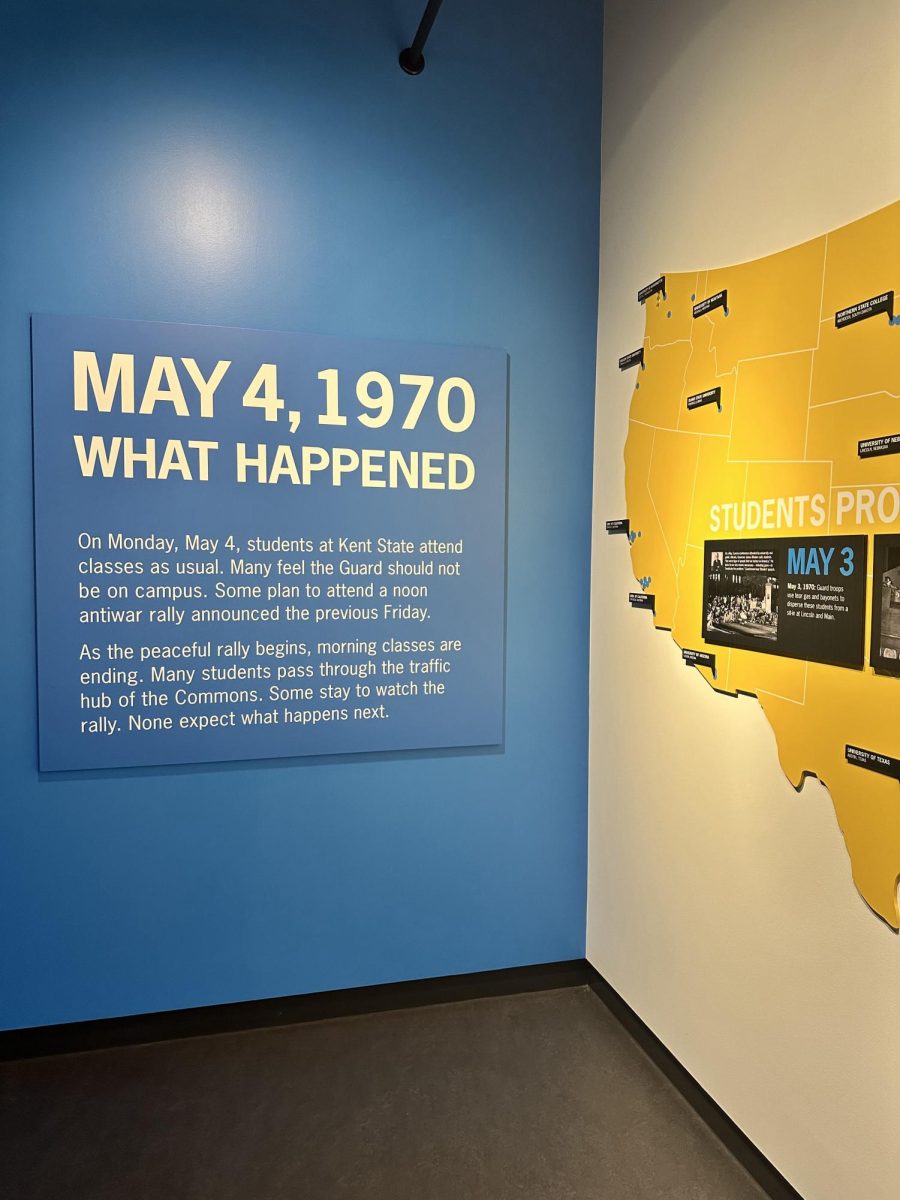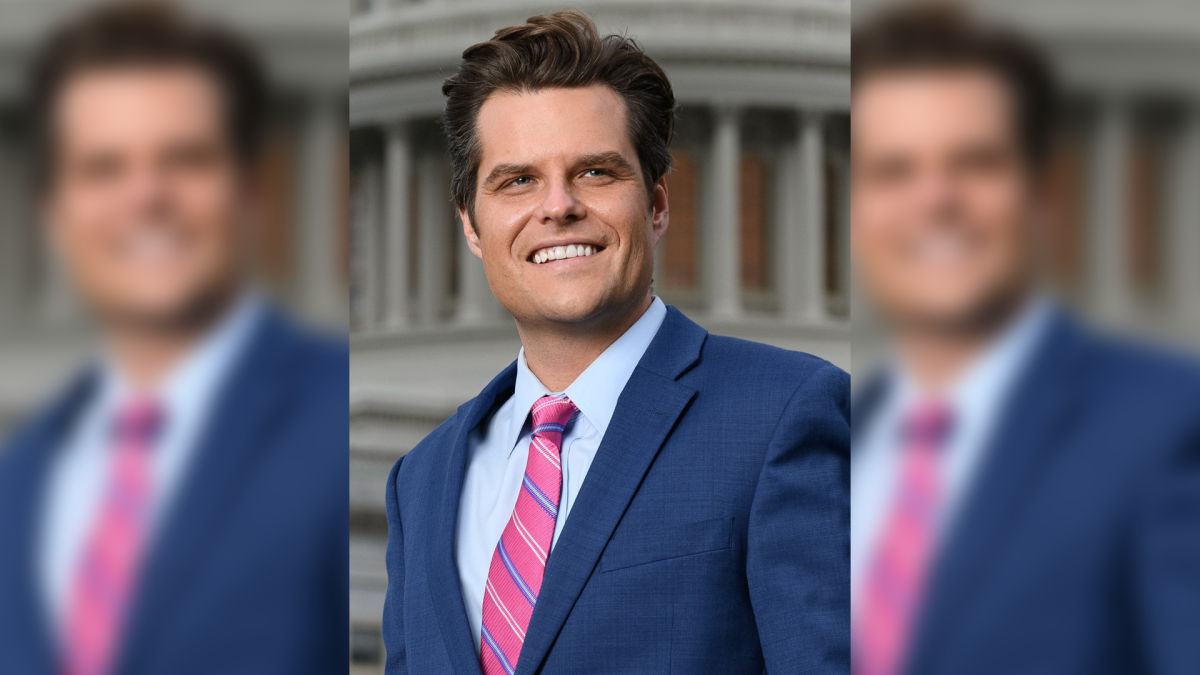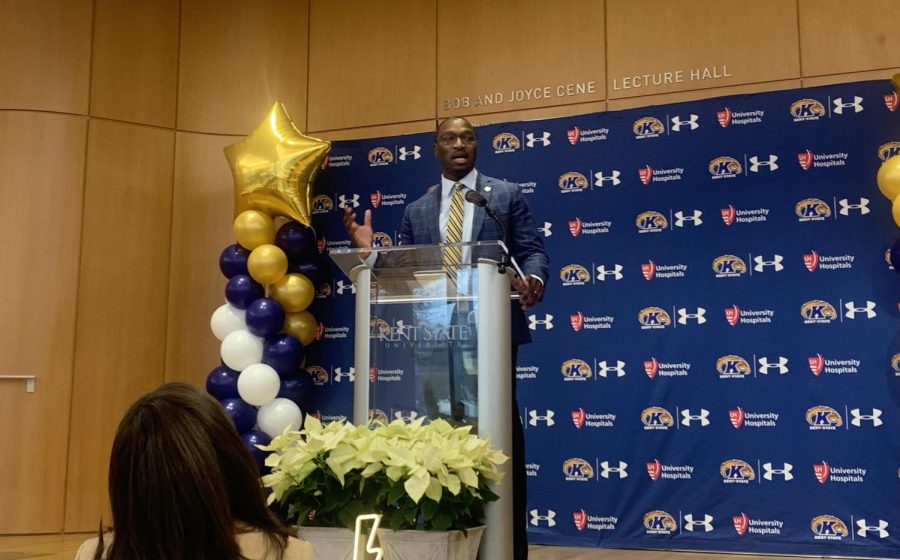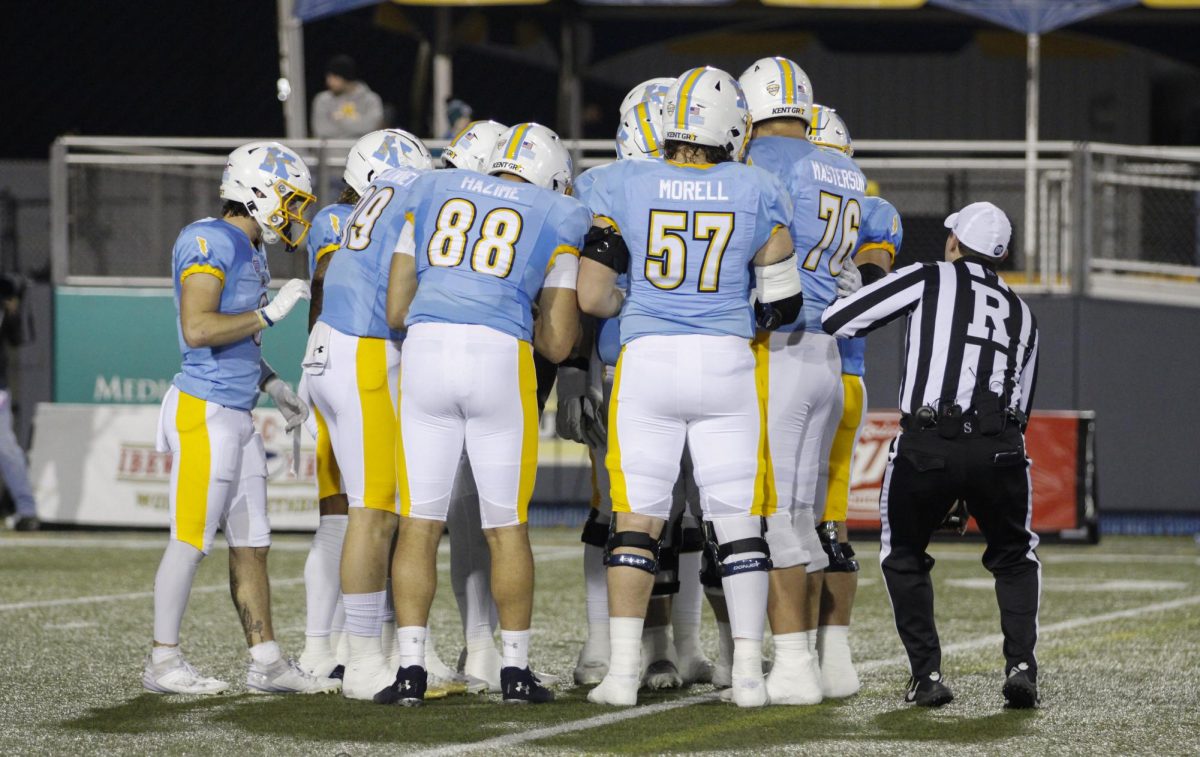Editor’s note: Sophia Swengal is an opinion writer for KentWired. She was interviewed due to her relevance to the article.
Sophia Swengel is a sophomore history major at Kent State University — and the sole chair of the May 4 Task Force.
The task force, formed in 1975, is an organization dedicated to raising awareness about the May 4 shootings on campus and upholding their legacy.
GORMAN: Can you tell me about your role on the task force and the responsibilities it holds?
SWENGEL: I’m the chair, the sole chair. I’ve been in this position since December 2023. It’s very much a team effort with my other officers, but most of what I do is event planning, promotion and outreach to the student body and the May 4 community.
GORMAN: What drew you into this position and what does it mean to you?
SWENGEL: Even back in high school, I was deeply interested in May 4 history. Learning about the task force and its opportunity for student involvement in preserving that history meant a lot to me. However, upon becoming secretary, I noticed the group’s limited presence on campus, which was unexpected. It’s a grassroots effort with everyone giving their all. My main goal is to increase student awareness of the club and, more broadly, of May 4 history.
GORMAN: How have you begun to plan this year’s 54th anniversary commemoration events?
SWENGEL: Our schedule for May 4 is very much in the planning stages, however, we already have a couple of events lined up in April leading up to May 4. We have a collaborative event with the History Club on April 12, talking about May 4 history. We also have a movie night in the May 4 Visitors Center scheduled for April 16, where we will be showing “Fire in the Heartland”, which is a documentary about May 4. We’ll have snacks and activities and all sorts of stuff. We’re also going to have a banner painting event on the “K” [Risman Plaza]. We had one last year, and it was really successful. Additionally, we are planning on a panel event in the May 4 Visitors Center. Speakers are currently a work in progress.
GORMAN: What are the most important parts of preparation from your perspective?
SWENGEL: I think the most important part is just getting people aware. More and more, I see people who are very unaware of May 4 in general. Getting the word out as much as we can and showing people that this is a really important facet of a campus history and legacy to get involved in — I think that’s the most important thing. Students should know that they play a very important role on campus in terms of using their voices and carrying on that legacy.
GORMAN: What do you find to be most challenging and what are your biggest obstacles?
SWENGEL: Since we are a small, tightly-knit group, most of our support and work comes from the three people in the task force, as well as faculty and community members who have been involved in assisting the task force for decades. We also receive support from resources within the university itself, such as the May 4 Visitor Center; they have been incredibly supportive of us. We essentially need all the help we can get. I would definitely love to see the task force grow. That’s a significant part of why I’m so interested in finding ways to increase student awareness of the task force’s existence because we often feel overlooked.
GORMAN: Is there anything you hope to change or hope goes differently this year during commemoration week?
SWENGEL: Last year was really successful. We hosted a panel event with an amazing turnout. The banner painting event also went great, and the commemoration itself was fantastic. However, I do hope that awareness of the task force grows. We hope that the upcoming events we’re planning will further elevate our profile, get more people involved and demonstrate the significance of both the university and our organization’s history, inviting others to be a part of it.
GORMAN: Why do you believe students should participate in May 4 awareness and care about May 4?
SWENGEL: It’s a crucial part of local and state history and national and global significance. The events of May 4 deeply impacted the world we live in today, and we would not be at the point where we are as a university or as a country if this had not happened. Kent State has a history of student activism that extends far beyond May 4, highlighting the importance of voicing opinions and exercising freedom of speech, especially for young individuals on a college campus with numerous opportunities and resources for involvement.
GORMAN: Where should students stay up to date on the May 4 Task Force and May 4 events?
SWENGEL: We have an Instagram (@may4taskforce). That’s the best place to see all updates and events.
Note: Swengel is a student reporter. She was interviewed for this article on the basis of her involvement in the May 4 Task Force.
Parker Gorman is a reporter. You can contact her at [email protected].








